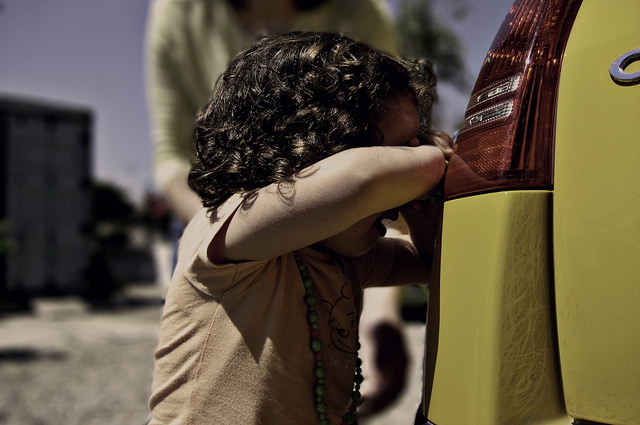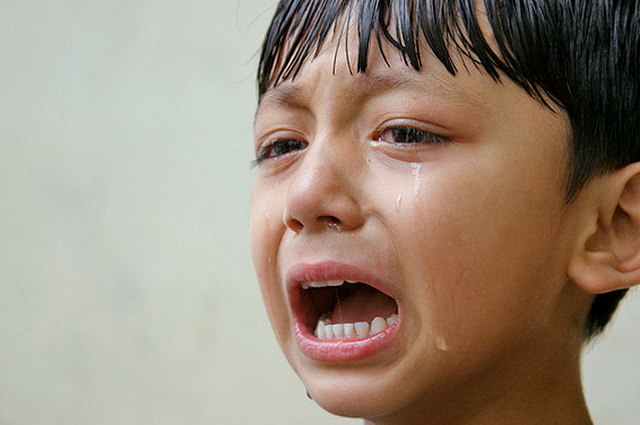Tag Archives: anxiety during school break

Troubleshooting the Refusal to Attend School in Children with Autism Spectrum Disorders
For a child with ASD, school can be a scary place. There is a lot of sensory information being thrown at the child from what feels like all angles, a high level of social interaction is required, and unstructured times (such as between classes, or at recess) can leave the child feeling lost. As such, many children with ASD develop a strong resistance to attending school, and owing to the rigidity of those with ASD, it can be very hard to convince the child to do otherwise.
No parent enjoys sending their child to a place he or she hates, and every parent wants their child to succeed at school, and to enjoy it as much as possible. To that end, it’s important not to give up on the concept of a child with ASD enjoying school; instead, if your child is resisting school attendance, try the following strategies to get him or her turned around to the idea of school again:
Try to discover why the child does not wish to attend school; remember that bullying is a common experience for those with ASD, due to their socially awkward behaviour. Always begin by making sure the child is not being picked on. Also check for:
- Unstructured times being a subject of stress and confusion.
- A specific unpleasant event which the child may now be avoiding, but has been unable to vocalize (or possibly even able to identify that he or she is so upset about it). Remember that even minor events may seem very confusing or upsetting to someone with ASD.
- A lesson or class the child is struggling with. He or she may have become so frustrated at not getting it that the entire idea of school has become upsetting.
- If your efforts come up empty, contact the school to see if any of the staff have observed something that may have motivated the child’s resistance.
If your child is having a difficult time expressing his or herself, you may want to use visual supports to facilitate communication.

Troubleshooting Common Problem Areas in Children With Autism
When dealing with a child on spectrum, the presence of sudden or chronic behaviours that are aggressive, odd, or socially inappropriate can present challenges one may feel ill-equipped to understand and deal with. Being prepared ahead of time can help a great deal in managing these issues in the calm, logical way. The following questions and answers cover some of the most common problems that arise with the behaviour of children (and some adults) who have Autism Spectrum Disorder (ASD):
My child’s behaviour has changed suddenly; what should I do?
First off, have the child seen by a doctor. Children with ASD sometimes can’t identify and/or vocalize their feelings, so may not be able to express the pain caused by a medical condition that has arisen quickly, making it important to rule such out.
Once medical issues have been found absent, assess whether or not changes to the child’s routine or environment have happened recently. Remember that even small changes, such as re-arranging a room or changing lighting or shampoo brands, may upset someone with ASD and bring out “coping behaviours”.
My child doesn’t understand physical boundaries and tries to hug strangers; what should I do?
Remember that social boundaries are very challenging for someone with ASD to grasp; they quickly assume what is okay at home or with friends is okay as a general rule.
To combat this, try writing a “social story” (with pictures if possible) explaining why people hug friends and family, but not strangers. A comic strip style of format is often ideal for these.
Try to teach more appropriate ways of showing affection to strangers rather than just limiting the problem behaviour, as those with ASD should be encouraged to interact socially as much as possible/enjoyable. Suggest waving to strangers instead, for example, or holding the door open for them. Reward the child for practicing these alternate skills.
Consider conducting a general social skills “training course” for the child, explaining in story form why people greet each other in the ways they do, part as they do, etc.
My child gets very anxious during breaks and at lunch hour; how do I help her deal with this?
School break times often stress those with ASD because they are both unstructured time and often involve sensory overload (noise from many children playing, lots of movement).
Consider having a support worker stay with your child during these times and structure the break time around certain games each day to create a routine.
You can also look for special support groups at the school for those with ASD that focus on teaching children social skills in a way they can handle. This way the child both develops a peer network and receives structure and support, with someone on hand to help her troubleshoot her particular issues with social interaction.
Give your child methods for indicating her distress to staff if she can’t easily vocalize it, such as stress scales, so that staff know when it’s time for a “time out” from social situations. Likewise, teach your child healthy relaxation techniques to use during these breaks, such as listening to soft music or practicing deep breathing.
If breaks are still simply too overwhelming, seek permission from the school for your child to spend them in the library or computer room.
